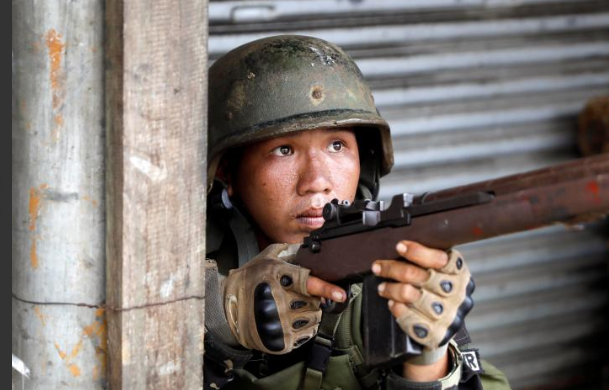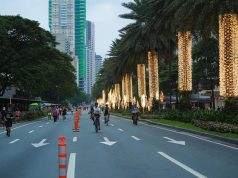
MANILA, Philippines – Government troops won’t be able to meet its June 2 deadline to end the Marawi crisis, Armed Forces of the Philippines (AFP) spokesperson Brigadier Gen. Restituto Padilla said Friday.
“I don’t think we can meet the deadline today to completely, I’d like to qualify that, to completely clear Marawi of every single arm element in every street,” Padilla told reporters.
“Until such time that every member of this armed group, this rebellious group that still wants to make a stand inside Marawi, exists, we cannot totally say we have cleared Marawi,” he added.
It was martial law administrator Defense chief Delfin Lorenza who imposed the June 2 deadline of finishing the crisis in the Lanao del Sur capital, which continues to be besieged by the Maute Group. The rebels started to sow violence in Marawi on May 22, prompting President Rodrigo Duerte to declare martial law in Mindanao the following day.
The 10-day battle between government troops and Maute rebels from May 23 to June 1 has resulted in the death of 175 people — 120 from the rebel side, 36 from the military and the police, and 19 civilians, who were killed by local terrorist groups, according to data from the AFP.
The military data also showed that a total of 1,024 civilians were rescued and 98 firearms were recovered from the enemies.
Asked by reporters on Thursday if it was still possible to end the crisis within the deadline, Lorenzana said government troops still had 36 hours to “hopefully” end the problem in Marawi and gain full control of the city from Maute militants.
But Padilla on Friday said rebels had continued to “occupy commercial buildings as their defensible enemy lairs,” which he said “is the subject of military action being conducted for the past few days until now.”
Earlier, Lorenzana said government troop movements in Marawi were being hampered by difficult enemy terrain and rebels who frequently moved and changed positions within concrete houses and other structures that were close to each other.
“They are actually holed up in reinforced buildings. And pati ‘yong mga kanyon natin parang hindi tumatalab eh. So ‘yon ang hirap doon [And even our cannons don’t seem to take effect. So it’s difficult there],” Lorenzana said on Thursday.
“(I)t is a built-up area and kung minsan ‘yong line of fire ng ating mga kanyon hindi rin makita dahil na-o-obstruct ng ibang building ‘yon eh [It is a built-up area and there are times we can’t see our cannons’ line of fire because it’s being obstructed by buildings],” he added.
Also, according to residents, enemies can easily get off the hook because they have built tunnels as escape routes. The Defense chief likewise said Maute “have so many snipers around shooting at our soldiers” and mosque were also being used as “nests” of these snipers.
Worsening problems in troop movement is the Maute Group’s use of civilians, including children, to deter attack by government forces.
“Compounding the situation on the ground is the use of these forces, these armed elements, of children and civilians as human shields,” said Padilla.
The AFP spokesperson added that the military would trace the source of the Maute Group’s high-powered firearms and ammunition once Marawi City has been cleared of terrorists.
“On the firearms they are using against government security troops, it looks like they have stockpiled them for some time, and we have captured a lot of them in the past few days. We will know where they acquired them once our investigation starts,” said Padilla.









